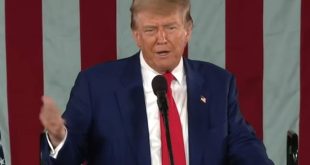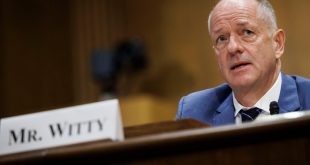Virginia, whose off-year elections are usually closely watched as an indicator of the national mood, has been mostly out of the spotlight this year, overshadowed by the Republican presidential primary and the looming general election clash.
But with every seat in the Legislature up in eight weeks, the stakes are unusually high, with Republicans in position to swing the entire state, just four years after Democrats did the same. The effort, led by Gov. Glenn Youngkin, a popular Republican with national ambitions, is likely to serve as an early read on the politics of 2024, spinning out lessons for both parties, especially on abortion.
Democrats have made abortion rights their top issue, warning that if Republicans win full control of the General Assembly, then Virginia will join other Southern states by sharply restricting abortion access.
A winning night for Democrats on Nov. 7, however, will show that abortion remains just as potent a get-out-the-vote issue for the party as it has been in a string of state elections since the reversal of Roe v. Wade.
With Mr. Youngkin overseeing his party’s message, the Republican pitch to turn out voters is less conservative red meat than roast chicken — a Republican comfort menu of tax cuts, job creation and parental influence over schools, which the governor labels “common-sense conservative policies.”
On abortion, Mr. Youngkin, who is not on the ballot, wants to ban the procedure after 15 weeks with exceptions for rape, incest and the life of the mother. If Republicans take majorities in both legislative chambers — and both are in play — the takeaway is likely to be that the party cracked the code with suburban swing voters on abortion by offering a more middle-of-the-road position than the near total bans passed in deep-red states.
“This election is going to matter, it’s going to set things up for 2024,” said Don Scott, the Democratic leader of the Virginia House of Delegates, who is one his party’s lead strategists. “If Virginia goes the wrong way, the narrative is going to be the Republicans have figured out the right election combination to overcome their extremism on abortion.”
And it could be a road map for Republicans in other states who are looking to defuse the issue after election losses following the Supreme Court’s Dobbs decision.
All 40 seats in the Virginia Senate and all 100 in the House are on the ballot. Republicans hold a slim majority in the House and Democrats narrowly control the Senate. Strategists on both sides agree that each chamber is up for grabs.
“Folks, hold our House and flip our Senate, we know how to do this,” Mr. Youngkin urged a crowd on Saturday in a swing House district south of Richmond. He added: “Virginia is the test case.”
He did not mention that another upshot of Republicans’ taking full control of state government is that Mr. Youngkin would further ascend as a national figure. Although he earlier teased a presidential run for 2024 — encouraged by many wealthy out-of-state donors and conservative media outlets who still yearn for him to get in the race — he has batted away the calls for months, saying his sole focus is turning the state.
Although he has not ruled out a late entry into the primary, the political calendar and the polls argue strongly against such a move. Filing deadlines for the ballot in the early primary states of South Carolina and Nevada will have passed by November.
In a recent Roanoke College Poll, 51 percent of Virginians approved of Mr. Youngkin’s job as governor, but only 9 percent of Republicans in his home state want him to be the 2024 nominee, versus 47 percent who favor Donald J. Trump.
Mr. Youngkin, a wealthy former financial executive, has raised record sums for the Spirit of Virginia, his political committee supporting legislative candidates. The group says it pulled in $3.3 million in August and has raised $12 million since March. It is underwriting a tour of swing districts with Mr. Youngkin urging supporters to sign the side of a bus to show their commitment to voting early starting Sept. 22 — a practice that Mr. Trump had made toxic with the G.O.P. base, but has recently embraced.
With Democrats lacking a comparable state leader this year, Virginia’s Democratic U.S. senators, Mark R. Warner and Tim Kaine, have raised alarms in recent weeks that the party was falling behind in fund-raising and mobilization.
The White House heard the pleas, and President Biden directed the Democratic National Committee to funnel $1.2 million to the Majority Project, the Democratic group in Virginia coordinating door-knockers and other voter outreach in key districts.
During Mr. Trump’s presidency, Virginia Democrats won full control of state government in elections in 2017 and 2019. In 2021, Mr. Youngkin and down-ballot Republicans profited from a backlash over pandemic-era school closures as well as rising inflation under Mr. Biden.
“I’d love to have said that Virginia is solidly blue; that’s clearly not the case,” Mr. Warner said in an interview. Control of each chamber is likely to come down to a handful of races: four seats in the Senate and seven in the House that are considered tossups, according to an analysis by the nonpartisan Virginia Public Access Project.
Many of the seats are in the exurbs of Virginia’s metropolitan areas — greater Washington, Richmond and Hampton Roads — a frontier of swing voters, many college-educated, the kind of voters who have had starring roles in elections across the U.S. in recent years.
Democratic strategists said they needed to win only one of the four tossup Senate seats to hold their current majority. They are encouraged that Democratic congressional candidates carried all of the districts in the 2022 midterms. Republicans counter that Mr. Youngkin won the same districts in his 2021 election, and that he remains popular.
One of the most closely watched races is between two first-time Senate candidates in Loudoun County, a Washington exurb that became a national flashpoint in 2021 after conservative attacks on its public school policies on diversity and transgender students.
Mr. Youngkin seized on those cultural issues to brand himself the “parents’ rights” candidate, which helped power his victory. In office, he banned critical race theory in K-12 schools (although educators said C.R.T. had no influence on curriculums), set up a tip line for parents to report about teachers and gave parents control of the names and pronouns their children used in school.
Whether these issues still motivate voters is one of the unknowns in this year’s election. Mr. Youngkin is betting that they do and is holding a “Parents Matter” town hall-style event in Loudon County on Tuesday. Over the weekend, the governor went on “Fox News Sunday” to announce he had pardoned a father arrested in a 2021 incident at a Loudoun County School Board meeting where the father had criticized officials after his daughter was sexually assaulted in school.
Russet Perry, the Democrat running for the open Senate seat in the county, said that when she knocks on the doors of swing voters, the top education issue she hears is concerns over school shootings, not culture-war matters.
“Parents are a little tired of the politics intentionally injected into the schools by people who do not live here, including Glenn Youngkin,” said Ms. Perry, a former prosecutor with a daughter who is a high school freshman in public school.
Across the state, the Democratic message is that Republicans are “extremists” and if they win full control in Richmond, they will seek strict abortion limits.
But Mr. Youngkin has mostly focused his message elsewhere. In his 18-minute speech to rally Republicans on Saturday in Prince George, Va., he did not utter the words “abortion” or “pro-life,” instead stressing “common sense” policies.
After a half-hour of greeting supporters, as aides hustled him to his car, he responded to a reporter’s shouted question about whether he would sign a six-week abortion ban.
“Virginians elected a pro-life governor,” he said. “At the end of the day, I think we can ask all kinds of hypothetical questions. What I’ve been very clear on — and I’d appreciate you writing it clearly — is that I support a bill to protect life at 15 weeks.”
 Top Naija News: Nigerian News, Breaking News Nigeria and World News Top Naija News is a daily news publication in Nigeria, delivering the latest breaking news in Nigeria and around the world.
Top Naija News: Nigerian News, Breaking News Nigeria and World News Top Naija News is a daily news publication in Nigeria, delivering the latest breaking news in Nigeria and around the world.



